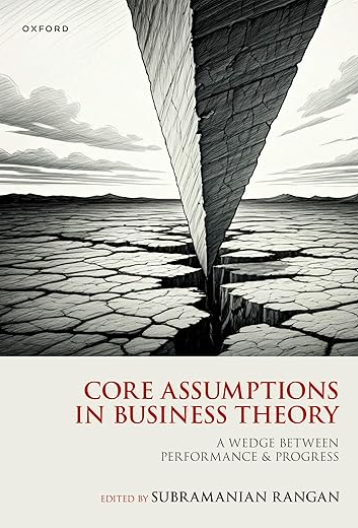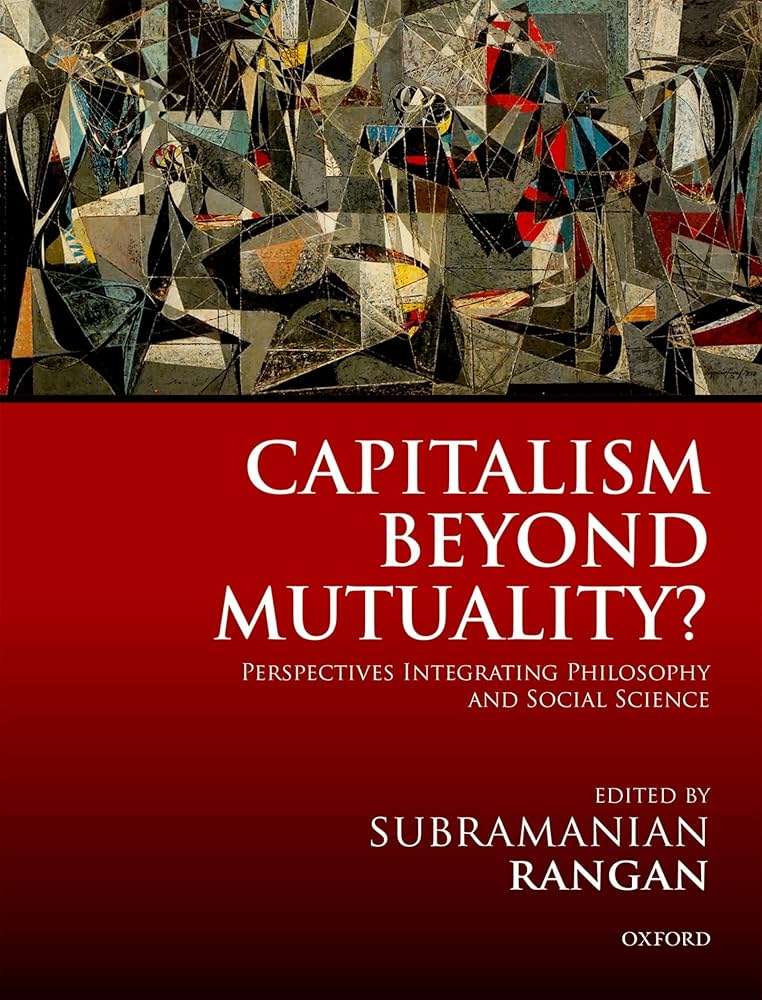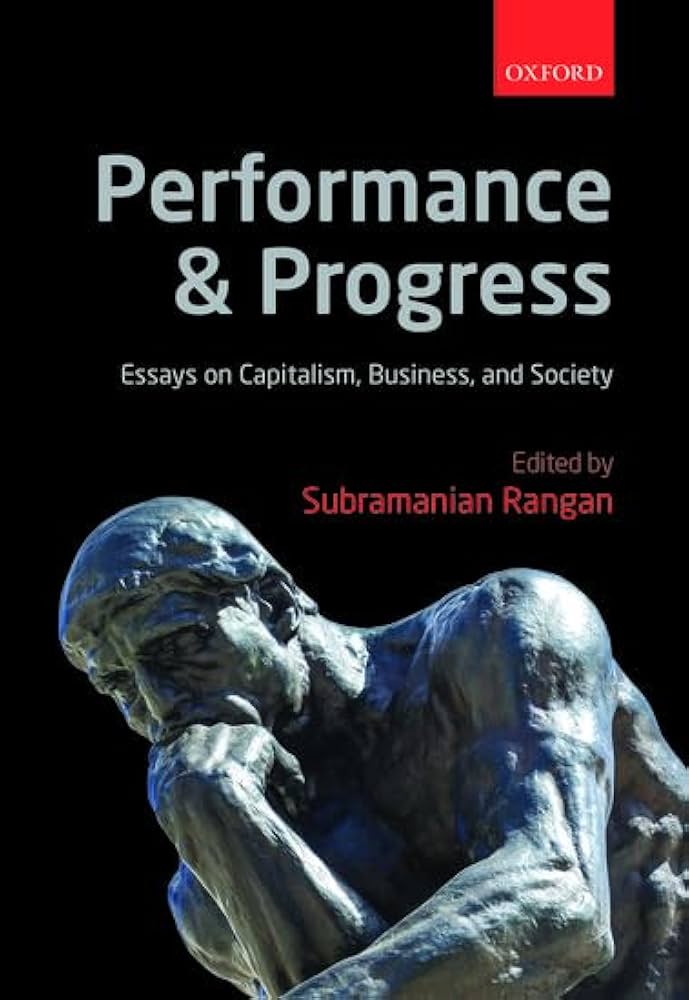About IPI Research
Over the last 100 years, business has generated immense wealth. GDP and corporate profits (and stock prices) have surpassed record highs. Yet, we witness a paradox of abundance. Anxiety and anger characterize societies around the world. Anxiety about the planet and anger at the neglect of people.
Essentially, business has delivered on performance but neglected progress (i.e., fairness, well-being, and sustainability). Business research and education must evolve to address this neglect. Indeed, there is a tremendous opportunity and need for business scholars to evolve business theory, business education, and business practice to better integrate profit, people, and planet.
The spirit in which we approach this research will be more applied than abstract. Accordingly, the community of IPI fellows will divide-up and work on several specific topics. Below we briefly outline each of these topics.
Research Topics

Strategy and Sustainability (Karel Cool plus others): How can enterprises better integrate business and sustainability objectives, i.e., profit and planet? With competition rising, the pressure to control costs is constant. At the same time, rising incomes and population are expanding consumption. Pressure on the planet is up. How can business leaders innovate more sustainable technologies and business models that align with economic performance? How can we enable and enact ethical inquiry and inclusive deliberation on this matter? While attention to the environmental opportunity/ challenge may wax and wane in the public discussion, research on this important topic must be redoubled. This work will develop and propose practicable frameworks founded on both the microeconomics of industry and competition, and the political philosophy of informed engagement and dialog. It will also document and distill “best practices” that can illustrate and inspire adoption.

AI - Labor R&D (David Autor, Alexandra Roulet, plus others): With the advent of digital technologies, especially AI, the tasks/ occupations of a significant number of working-age adults is likely to be automated. The promise of innovation and productivity gains is real (especially in the people-intensive tertiary/ services sector) and it would be beneficial to adopt new technologies. At the same time, as a moral complement, we must encourage and enable labor reskilling and development. Experience from trade shows that adjustment can be hard for workers and communities to tackle effectively on their own. Practice from countries like Denmark shows that an enabling ecosystem is helpful. Enterprises, labor unions, institutions of adult education, and the affected workers themselves, must each play a role in enabling labor transition and flexibility. There will no doubt be costs—in terms of time, money, and energy—of doing this. Yet, the costs of not anticipating and preparing for this are likely to be greater in political fallout and instability. The current vibe of protectionism/ nationalism gives us a hint of this. Regulations may increase and hamper the economy; and investments are likely to be held back. How to address time-compressed labor adjustment so that people may preparedly migrate to new occupations, sectors, and professions while maintaining and even raising their productivity, earnings, and standards of living? This is an increasingly urgent area for research in the workings of the labor market and the well-being of communities.

Caring Consumption (Mike Fuerstein, Hilke Plassmann, plus others): How do we engage consumers (i.e., the demand side) to become a reliable part of the solution when it comes to fairness, well-being, and sustainability? The basket of goods and services one consumes influences standard of living and well-being (hedonic and even psychic). The “Big-5” categories in our chronic consumption are food, apparel, housing, mobility, and technology. What is the neuroscience of consumption and how has it evolved across needs and wants? To what extent are we hard-wired for taste, size, novelty, status, convenience, and such? How to promote thoughtful consumption especially on the Big-5 at the individual, household, community, company, and societal level? In South Korea, a “pay as you throw” policy has reduced “food waste to landfill” and led to circular models that direct food waste to energy, fertilizer, and animal feed. What are the implications for rethinking marketing as consumer education? What about enterprise growth? How to create metrics, data, and rankings that may catalyze a positive and powerful cultural change on this front?

Well-Being at Work (Indra Nooyi, Valerie Tiberius, plus others): By the end of the 20th century, as the modern economy and access to education expanded, urbanization and professional opportunities rose. Individuals and families became more work-centric. Social arrangements evolved. The scope of engagements expanded (across education, career, home, family) and life became more enriching. At the same time, the expanded life has been accompanied by not a little stress and anxiety. Traditional support systems have withered, and housing, health care, education, not to mention paid support, has become more expensive. This, to some extent, has triggered a work-more-to-earn-more-to-pay-more spiral. Time poverty is now all too common, and, relationships, considered a foundation for well-being, tend to suffer. Today, workplace engagement surveys are hardly heartening. Mental health has joined physical health as a major category of concern and lost productivity. The developments are reflected as well in declining fertility and demography. How to engender well-being at work and mitigate problems related to mental health? How to address working families’ sentiment of being left behind? How to address real fairness gaps in compensation (reflected in rising Gini coefficients, and a difference between minimum and living wage)? How in the 21st century can we make work family-centric? How to address the perceived crises of care (child-care, elder care, self-care)? How to encourage “couple equity” (where men share care duties more proportionately)? Better answers will be key to well-being and healthy demography.

Caring & Character (Elizabeth Anderson, Subi Rangan, plus others): From finance, to pharma, to aviation, to technology, the scandals that all too regularly grab our attention are seldom related to the competence of the leaders. Rather they tend to reflect the character of the leaders involved. Indeed, when people express disappointment in elites and elders, it is more related to the character (than the competence) of these latter. Leaders, the people we entrust with power, have a role to play and not just a job to do. Yet, research on character, moral identity, and role theory is sparse. Character is that part of human capital that refers to such non-cognitive skills as caring, commitment, and courage. Leaders have the power to articulate goals, formulate strategies, invest in capabilities, and design incentives to shape culture. If those in power care genuinely about the broader consequences of their choices then they can better integrate performance and progress. How might we evolve leaders’ caring from a “need-to-do” compliance mindset to a “want-to-do” contribution mindset? A need-to-do mindset evokes fatigue and perfunctory action. A want-to-do mindset evokes engagement, creativity, and consummate action. If we want our economy to be modern and moral, then we must better understand moral character and how to deepen it among leaders and economic actors.

Mobilizing Collective Choice & Action (Julie Battilana, Ramon Mendiola, plus others): Among the many reasons for the persistence of the knowing-doing gap is the “tyranny of complementarities.” For instance, to address obesity may require individual consumers, food producers, retailers and restaurants, health specialists, gyms, the education system, and social groups to all engage with some synchronicity. To reduce corruption may require coordination across multiple agencies and actors (on both sides of the transaction). The same for renewable energy, which calls at once for favorable capital, technology, adapted regulation, community consent, zoning permits, etc. In other words, the choice to integrate performance and progress often requires the collective engagement by multiple and disparate stakeholders (including key shareholders, customers, employees, eco-system partners, regulators, and especially communities). The challenge is starkly illustrated in the delays we witness in the energy transition. How to address the problem of collective choice and action when requisite authority, resources, capabilities are distributed across economic actors who face asymmetric payoffs? Unless we study and learn to address this vexing challenge, a lot of our hopes for a more sustainable future will be sorely delayed if not entirely dashed.

Corporate Governance (Laurence Capron, Philip Pettit, plus others): With the separation of ownership and control in the modern corporation, governance arrangements (representing the share owners) became routine and formalized. Corporate governance has come to refer to the structures and processes of selecting, overseeing, evaluating, and incentivizing an organization’s leaders. Governance in this sense is an exercise of “power over power.” Agency theory informed the initial design of governance. This eventually led to the widespread adoption of stock-price and enterprise value-related compensation for leaders. This in turn has led to some predictable consequences including at such well-known firms as Boeing, GE, and OpenAI. Today governance clearly lags the expanding expectations that society has of enterprise. Board independence seems perfunctory (e.g., Tesla?). It is not clear who the board should represent. Boards may be powerful but not courageous. Indeed, if business is to better integrate performance and progress, then we need to examine and upgrade corporate governance. Why is governance still largely ceremonial and how can we make it compositionally, procedurally, and substantively better? In a world where shareholders have residual rights, managers have decision rights, and stakeholders have voice rights, how can governance attend to and integrate these rights? How can governance help the corporation be modern and moral?

Measurement & Accountability for True Value (Peter Joos, John Meyer, plus others): Enterprises are platforms that gather disparate resources and then strategize and act to allocate those in the most efficient and creative ways. The allocation and use of resources (especially other people’s resources) of course calls for regular accountability and reporting. This information function is what financial and managerial accounting has been concerned with. It has been used primarily for the evaluation of the leaders of the enterprise. Now, as business strives to integrate people and planet, we will need to develop and adopt a method for integrated accounting and accountability. How to reasonably and justifiably measure impact on people and planet? The plethora of ESG scoring and reporting methods represent attempts to do this. How to integrate that information with the conventional financial metrics of profit? How, in fact, to evolve toward a sort of “true value” accounting so that this information can be used to drive investment, innovation, and incentives? That is, how can accounting information be more oriented for feedback to the firm and not only for external reporting and evaluation?

Train the Trainers (Subi Rangan plus others): If we are to scale and spread the impact of IPI, then we will need to design and deploy a “Train the trainers” colloquium that will run annually. The idea will be to bring in scholars and teachers from around the world and share the research and pedagogy so that the reach and scale of the IPI will be large and global. This will also spur new research and enable the messages to be adapted to heterogenous local/ regional/ industry contexts.
Related Publications

Core Assumptions In Business Theory: A Wedge Between Performance & Progress
The modern market-based economy generates wealth, but it lags on well-being; it has mastered efficiency, but struggles with equity; it boasts size, but falls short on sustainability. In other words, our economy delivers performance but neglects progress (i.e., well-being, equity, and sustainability). Many rightly call for tighter regulation, higher (“true”) prices, and longer-term incentives. Others appeal to corporate purpose, shared value, and stakeholder-centricity.
Beyond regulation and the practice of business, we must attend as well to education and the theory of business. In particular, we must look at business theory's core assumptions, whose weaknesses are long known. In an applied field such as business, where theory tends to be normative, flawed assumptions could act as a “wedge” cleaving apart performance and progress.

Capitalism Beyond Mutuality?
Mutuality, or the exchange of benefits, has been established as the prime principle of action and inter-action in addressing the chronic dilemma of human interdependence. Mutuality is a fundament in the social contract approach and it continues to serve us well. But, to address more robustly the concerns outlined above, we need to conceive a cultural economic system that is anchored on more than mutuality. In particular, we must help evolve an economic paradigm where mutuality is more systematically complemented by reasoned and elective morality. Otherwise the design of the state as protector and buffer between the market and society will remain the central (if inadequate) remedy.

Performance & Progress: Essays On Capitalism, Business And Society
The prevailing aspiration of business is performance, while that of society is progress. Capitalism, both the paradigm and practice, sits at the intersection of these dual aspirations, and the essays in this volume explore its fraught status there.
Contributions to this volume address questions such as what's the problem with capitalism?; is the problem just with the practice or with the very paradigm?; what is progress and who is responsible for it?; what evolution is required at the individual, system, and paradigm level so that enterprises and the executives who lead them may better integrate performance with progress?; and whether consumers, employees, and investors in this evolution?
Recent Articles

New Book Exposes 'Wedge'

The Economics of Sustainability

Sustainability as a Business-Model Transformation

Business Practice Gone Astray?

Thoughtful Consumption for Well-Being and Sustainability

Why Do Government so Often Disappoint?


